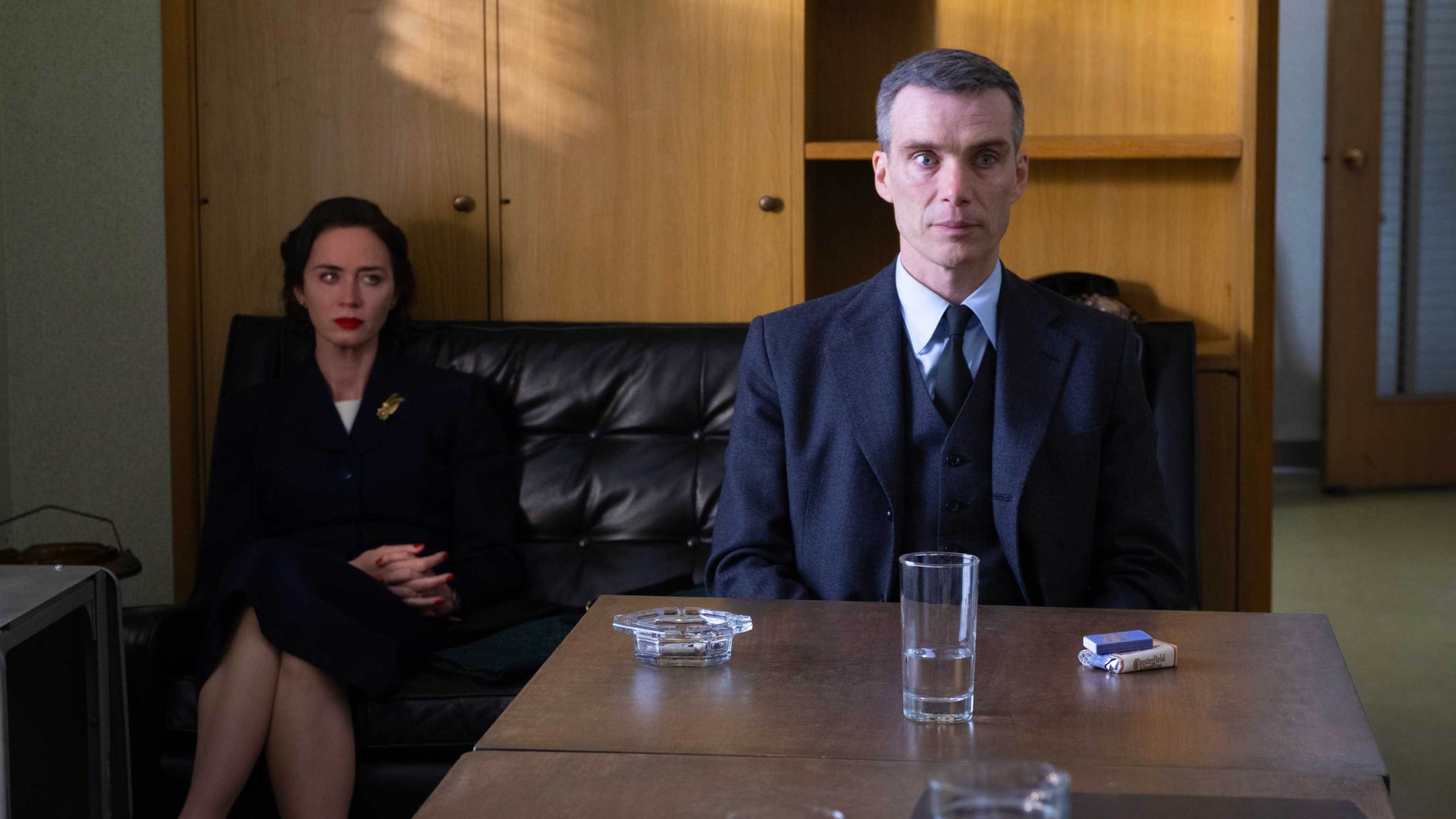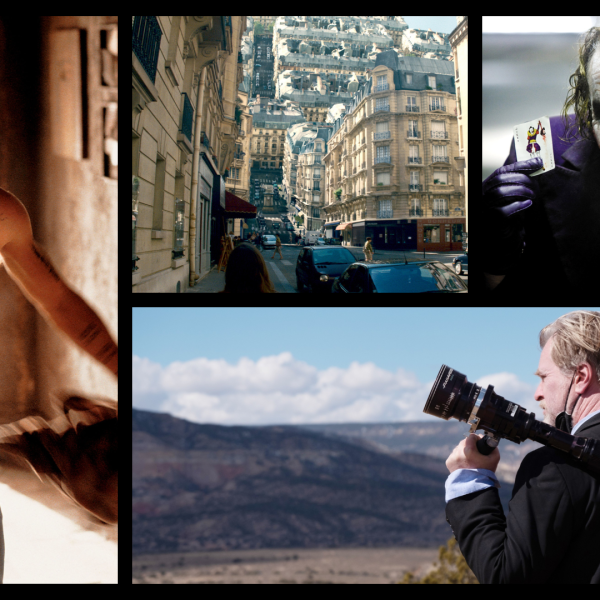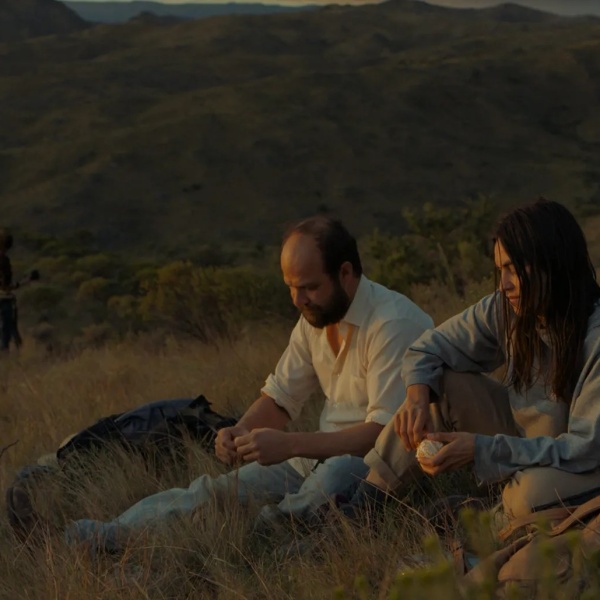This article contains IndieWire’s preliminary Best Editing predictions for the 2024 Oscars. We regularly update our predictions throughout awards season and republish previous versions (like this one) for readers to track changes in how the Oscar race has changed. For the latest update on the frontrunners for the 96th Academy Awards, see our 2024 Oscars predictions hub.
The State of the Race
It’s a Best Editing Oscar race dominated by existential crises and flipping historical conventions, led by Christopher Nolan’s frontrunning “Oppenheimer” (Universal), Yargos Lanthimos’ “Poor Things” (Searchlight), Bradley Cooper’s “Maestro” (Netflix), Greta Gerwig’s “Barbie” (Warner Bros.), and Martin Scorsese’s “Killers of the Flower Moon” (Apple TV+/Paramount).
Other contenders include Alexander Payne’s “The Holdovers” (Focus Features), Cord Jefferson’s “American Fiction” (Amazon/MGM), Jonathan Glazer’s “The Zone of Interest” (A24), Ridley Scott’s “Napoleon” (Apple TV+/Sony Pictures), Celine Song’s “Past Lives” (A24), Emerald Fennell’s “Saltburn” (Amazon/MGM), Ben Affleck’s “Air” (Amazon/MGM), Justine Triet’s “Anatomy of a Fall” (Neon), David Fincher’s “The Killer” (Netflix), Wes Anderson’s “Asteroid City” (Focus Features), and Blitz Bazawule’s “The Color Purple” (Warner Bros.).
“Oppenheimer,” the three-hour thriller about J. Robert Oppenheimer (Cillian Murphy) — the “father of the atomic bomb” — offered editor Jennifer Lame numerous challenges as a non-linear, cross-cutting narrative in both color and black-and-white, with cinematographer Hoyte van Hoytema’s innovative 70mm IMAX footage as the centerpiece. The film is divided into two perspectives: Oppenheimer’s journey to build the atomic bomb in Los Alamos during World War II and rival Admiral Lewis Strauss’ (Robert Downey Jr.) advocacy of further nuclear testing during the Cold War as chairman of the Atomic Energy Commission. However, the key framing devices are Oppenheimer’s hearing in 1954 to revoke his security clearance and Strauss’ Senate confirmation hearing for Secretary of Commerce in 1959. This is where Lame brilliantly excels at managing the pace and tension of people talking in rooms.
Lanthimos reunites with go-to editor Yorgos Mavropsaridis (the Oscar-nominated “The Favourite”) on “Poor Things,” a twisted “Frankenstein” gender-bender. It stars Emma Stone as Bella, who’s re-animated with the brain of her unborn child by unconventional scientist Baxter (Willem Dafoe). This results in a bizarre reset for Bella into a liberated, free spirit who upends 19th-century roles and conventions. Mavropsaridis brilliantly manages the sudden shifts in tone, locale, and visual style (including the early transition from black-and-white to different shades of color) that define Bella’s journey.
In “Maestro,” Cooper enlists Emmy-winning editor Michelle Tesoro (“The Queen’s Gambit”) to explore the love story between legendary conductor/composer Leonard Bernstein (Cooper) and actress wife Felicia Montealegre (Carey Mulligan). This spans more than four decades and is complicated by Bernstein leading a double life as a gay man. The first half is in black-and-white, establishing the strong emotional connection between the couple while emphasizing Bernstein’s frenetic rise to musical superstardom. But in the second half, when they drift apart, the rhythm slows down and the tension heats up (beginning with a remarkable Thanksgiving fight with the Snoopy float lurking in the background). Cutting to Bernstein’s music (recorded live as though he scored his own life story) is a key emotional component, and the transitions were done smoothly in the final cut as either straight cuts or dissolves.
With “Barbie,” Gerwig and editor Nick Houy (“Little Women,” “Lady Bird”) navigate an unconventional structure for Barbie’s (Margot Robbie) Pinocchio-like journey to experiencing humanity. She ventures from the feminine utopia of Barbie Land to the patriarchal “real world” of Century City and Venice and then gets in a power struggle with Ken (Ryan Gosling) back in their home. Careening between artifice and reality, comedy and drama, required delicate rhythm and pacing, an overriding clarity, and cutting it for coming “in the wrong place.”
In “Killers of the Flower Moon,” Scorsese and longtime editor Thelma Schoonmaker (the Oscar-winning “The Departed,” “The Aviator,” “Raging Bull”) tackle the director’s first epic Western. It’s a historical tragedy about corruption, greed, racism, and murder, framed as the divide between beauty and degradation. The film is about the Oklahoma serial murders in the Osage Nation during the 1920s, committed after oil was discovered on tribal land. However, it focuses on the psychological implications rather than the procedural crime-solving. What’s key is the layering of the conspiracy between cattleman William Hale (Robert De Niro) and his naive nephew Ernest Burkhart (Leonardo DiCaprio) to obtain the family fortune of Burkhart’s wife, Molly (Lily Gladstone), and how it poisons any hope of prosperity for the couple and the Osage community.

Payne’s “The Holdovers” is a bittersweet dramedy about a cranky history professor (Paul Giamatti) at a New England boarding school in the ’70s, who’s forced to babysit a handful of students with nowhere to go during the Christmas break. He forms a surprising bond with a rebellious student (Dominic Sessa) and the school’s head cook (Da’Vine Joy Randolph), whose son was recently killed in Vietnam. The delicate balance of whimsy and melancholy is deftly handled by the director’s go-to editor, Kevin Tent, who benefited from brilliant performances.
Fincher’s passion project, “The Killer,” based on the graphic novel by Alex Nolent, finds Michael Fassbender’s patient and meticulous assassin making a rare mistake and then having to step out of his comfort zone to clean up the mess. Oscar-winning editor Kirk Baxter (“The Girl with the Dragon Tattoo,” “The Social Network”) helps us get inside the mind of the Killer throughout six chapters that take place in Paris, the Dominican Republic, New Orleans, Florida, New York, and Chicago. Each section has its own look, rhythm, and pace evocative of the city, his state of mind, and behavior. It’s a noirish existential journey from nihilism to caring that makes particular use of a mantra voice-over, The Smiths, and a sound mix that’s like attaching a mic to the camera so you can hear everything around him.
As for the rest: Jefferson’s “American Fiction” (the TIFF People’s Choice Award winner adapted from Percival Everett’s novel “Erasure”) skewers “Black” entertainment’s tired and offensive tropes, with Jeffrey Wright’s out-of-touch author anonymously mocking the state of the industry and becoming a celebrity. Editor Hilda Rasula hits the right balance of absurdity and melodrama to counterpoint Wright’s real and imaginary conflicts.
Glazer has made a different kind of Holocaust drama about the banality of evil with “The Zone of Interest,” based on Auschwitz camp commandant Rudolf Höss (Christian Friedel), who lived with his family in a dream house outside the camp, with a lush garden lovingly tended by his wife Hedwig (Sandra Hüller). Editor Paul Watts helps attain the director’s non-cinematic, forensic approach (aided by the innovative 360-degree sets with 10 cameras for continuous action) by creating a smooth rhythm with invisible cuts.
“Napoleon” is cut by Scott’s go-to editor Claire Simpson (Oscar winner for “Platoon”) and Sam Restivo, who navigate Napoleon Bonaparte’s (Joaquin Phoenix) war on two fronts: the battlefield (six crucial ones, each with their own geometric pattern) and the home front with his obsessive love for Empress Joséphine (Vanessa Kirby).
In “Past Lives,” editor Keith Fraase intercuts the sublime romance between childhood friends Nora (Greta Lee) and Hae Sung (Teo Yoo), who are briefly reunited online before reconciling in person in New York City after two decades. Nora and Hae Sung are never in the right place at the right time to achieve their destiny, so there’s always tension. The brilliant opening scene in the bar poses the question: Who are they? The Skype bubble provides awkward intimacy, and the masterful final long take when Nora and Hae Sung say goodbye provides the answer.
“Saltburn,” Fennell’s blistering attack of the British upper class in the mid-2000s, is a cross between “Brideshead Revisited” and “The Talented Mr. Ripley.” Out-of-place Oxford student Oliver (Barry Keoghan) becomes infatuated with his aristocratic schoolmate, Felix (Jacob Elordi), who invites him to stay the summer with his eccentric Catton family at their magnificent, titular estate. Editor Victoria Boydell helps capture a peeping tom quality as we focus on Oliver’s attempts to become part of the family and the darkness that ensues.
“Argo” Oscar-winning editor William Goldenberg reunites with Affleck on “Air,” the sports biopic about Nike’s revolutionary Air Jordan basketball shoe line. It helps recapture an ’80s vibe and breaking out of the mold at Nike in recounting the obsession of basketball talent scout Sonny Vaccaro (Matt Damon) to sign Chicago Bulls rookie sensation Michael Jordan to an unheard-of branded shoe line. It’s especially effective when intercutting stock footage highlighting iconic cultural signposts of the period.
“Anatomy of a Fall,” Triet’s courtroom drama, edited by Laurent Sénéchal, has the rhythm of a Hitchcockian procedural. It’s about a German writer (Hüller) on trial for the murder of her husband in France following his mysterious death in the snow. It explores micro-legal issues and dissects their life together by cutting through various layers of masks and clouds.
With “Asteroid City,” Anderson re-teams with Oscar-nominated editor Barney Pilling (“The Grand Budapest Hotel”) for an existential, sci-fi odyssey set in the mid-1950s about the precariousness of life. The multi-layered ensemble film (led by Jason Schwartzman and Scarlett Johansson) deftly intercuts the re-enactment of a surreal play that occurs in the fictional desert town of Asteroid City during a youth astronomy convention (in pastel colors and widescreen aspect ratio) with the TV broadcast of the play and its behind the scenes backstory (in black-and-white and Academy aspect ratio).
In addition, Bazawule tapped editor Jon Poll for “The Color Purple,” adapted from the Broadway stage musical. It reimagines Alice Walker’s celebrated story of Black female empowerment during the early 20th-century South with an ensemble cast. It’s about the empowerment of Celie (Fantasia Barrino), who escapes her hardships with music and magical realism.
Potential nominees are listed in alphabetical order; no film will be deemed a frontrunner until we have seen it.
Frontrunners
“Barbie”
“Killers of the Flower Moon”
“Oppenheimer”
“Maestro”
“Poor Things”
Contenders
“Air”
“American Fiction”
“Anatomy of a Fall”
“Asteroid City”
“Napoleon”
”Past Lives”
“Saltburn”
“The Color Purple”
“The Holdovers”
“The Killer”
“The Zone of Interest”



